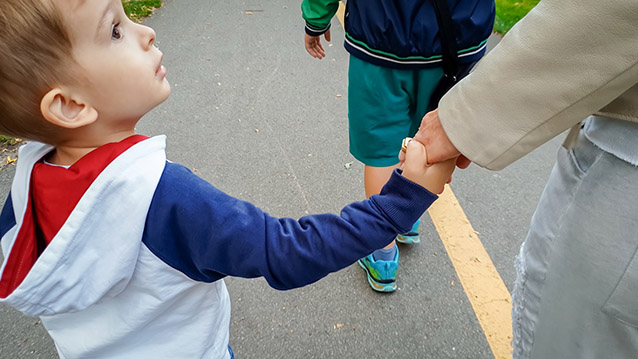Researchers’ views:
The social impacts of the coronavirus crisis, particularly on children and young people, can be anticipated and mitigated

As requested by the Ministry of Education and Culture, six researchers from different fields have looked into the effects of the coronavirus epidemic on children and young people in particular. According to the researchers, society must already take into account the period following the coronavirus crisis when planning different measures. In particular, the researchers raised the issue of additional resources for education and training, support for disadvantaged children and young people, and support for the arts and culture sectors.
On 30 March, the Ministry of Education and Culture asked six researchers for their views on the effects of the coronavirus epidemic on their respective fields. Participating in the work were Professor Sirkka Heinonen (future studies), Artist-Researcher Jussi Lehtonen (art studies), Professor Taina Rantanen (gerontology and public health science), Leading Senior Researcher Mikko Salasuo (youth research), Professor Christina Salmivalli (psychology, children and youth) and Professor Otto Toivanen (economics).
The researchers were asked to address three questions in particular: what can be done to prevent the corona spring from becoming a generation-defining experience that paralyses individuals, communities and society, what are the immediate and long-term effects of the situation, and what long-term measures should society take to mitigate the social effects of the situation.
Based on their views, the researchers prepared a synthesis to help in understanding the longer-term effects of the coronavirus epidemic and a proposal on ways to mitigate the effects.
The corona spring must not become the defining experience of a generation
In the researchers’ view, the corona spring is overturning society as a whole in a way that is reflected not only in the acute shock of dealing with the situation but also in the long run. The impact of the corona spring on children and young people in particular may be a significant and, at worst, life-defining experience for a generation.
In times of crisis, the ability of families and parents to support the children’s and young people’s learning is further emphasised. It is expected that inequalities among children and young people will be highlighted and that differences in learning will increase after the spring. The coronavirus crisis may also have significant effects on the social relationships of children and young people. In addition, the economic problems caused by the crisis may limit the children’s and young people’s recreational opportunities in the future.
Parents’ experiences affect children
The researchers also express their concern about the effects of parents’ situations on their children. Prior research has shown that the shocks experienced by parents, such as job loss, also affect the school attendance of children. There is also evidence from prior research that crises at later stages in life leave long-lasting imprints both when entering working life and when already working. In the context of the corona crisis, interrupted study paths, more difficult transitions to working life and interruptions in a person’s career or that of their parents can also have similar effects.
Tools for recovery from support and hobbies
In order to minimise the negative impacts, it is essential to be able to discuss the experience with children and young people and to identify needs for special support in learning, social relationships or mental wellbeing. Meaningful recreational activities, youth work, the arts and culture play an important role in the recovery process. The arts and culture can also play a major role in how people face and deal with impacts and fears.
Proposed measures
The researchers propose fifteen measures to mitigate the effects of the coronavirus crisis. One measure that could be taken quickly would be to conduct a survey of pupils in basic education about the need for support already in spring 2020. Additional resources are also proposed to support disadvantaged pupils and students, improve student welfare and develop youth work. The researchers also consider it necessary to prepare for future crises and, with this in mind, they propose a study on how to teach children and young people self-direction in their hobbies and how to increase opportunities for older people to participate in society through digital means.
Furthermore, the researchers consider it important to introduce support packages and programmes for artists and art institutions so they can produce tools for dealing with the crisis through the arts and art education.
The proposals for measures partly support the policies already being prepared by the Ministry of Education and Culture. The Ministry is using the researchers’ views in preparing measures for coping with the coronavirus situation in its own sector and across the Government.
Inquiries:
Anita Lehikoinen, Permanent Secretary, tel. +358 295 330 182
Erja Heikkinen, Director, tel. +358 295 330 101

